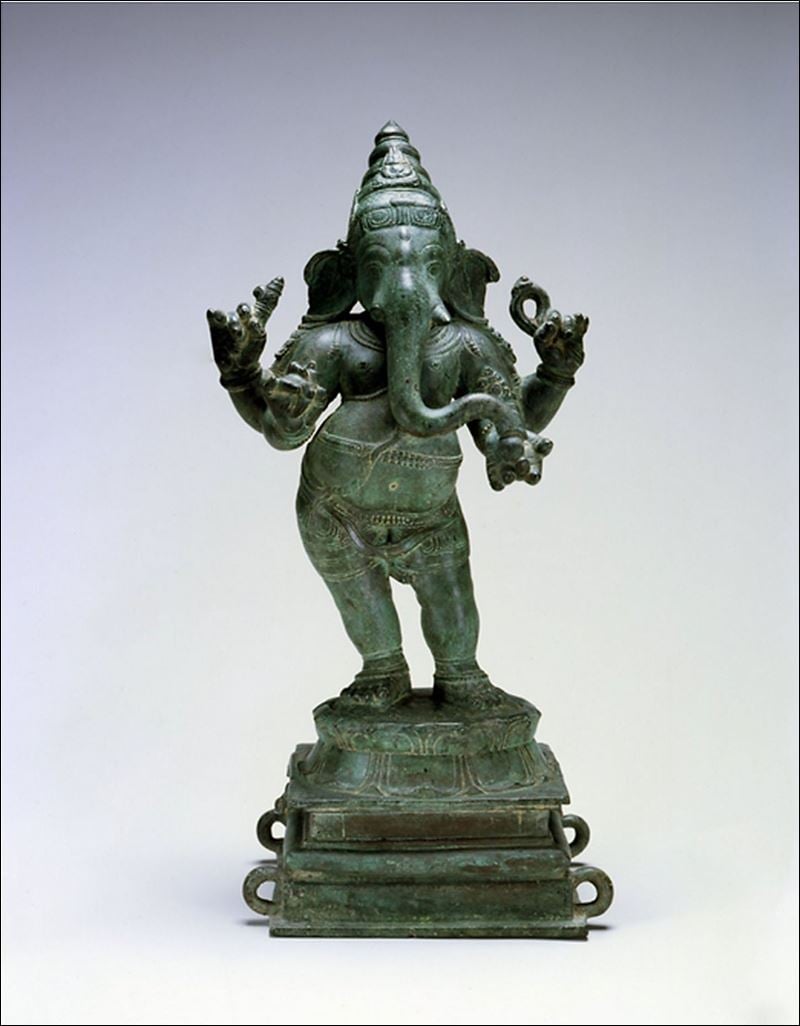
The Manhattan District Attorney’s Office has filed criminal charges against Indian art dealer Subhash Kapoor and seven coconspirators, charging them with operating a $145 million smuggling ring that dealt with thousands of looted antiquities over a period of 30 years. The arrest warrants for the eight men were filed Monday in New York City criminal court. It is the latest chapter of an ongoing international legal saga that has been getting knottier over the course of almost a decade.
Kapoor’s alleged wrongdoings were first made public in 2011, when he was arrested in Germany on suspicion of dealing in looted artworks after a years-long investigation codenamed Operation Hidden Idol. He is currently on trial in India, where he has been behind bars since July 2012. The new charges include 86 counts, from grand larceny to criminal possession of stolen property.
“It’s a fairly robust and complex complaint,” Kapoor’s lawyer, Georges Lederman of Pearlstein McCullough & Lederman LLP, told artnet News. He notes that at least one of the charges in the complaint filed in New York duplicates a crime for which Kapoor is on trial in India—an issue that will have to be sorted out by a judge.
Now age 70, Kapoor was a respected member of New York’s art community, helping museums around the world acquire important antiquities from Afghanistan, Cambodia, India, Nepal, Pakistan, and Thailand, sometimes through high-profile donations. But he has also been described as “one of the most prolific commodities smugglers in the world,” as the Immigration and Customs Enforcement special agent James T. Hayes told looted antiquities blog Chasing Aphrodite.
In 2012, authorities revealed that they had seized $100 million in stolen ancient art from the dealer’s storage facilities. More than 2,600 ancient statues, artworks, and other artifacts have been recovered to date, some as recently as 2016.
Kapoor duped many museums over the years, both by loaning them illicit artworks to make them seem more legitimate to prospective buyers, and by selling them the stolen objects. “These are, in many instances, priceless works that represent the culture and history of the countries from which they were stolen,” Manhattan District Attorney Cyrus R. Vance Jr. told the Associated Press. “They are of enormous value.”
The National Gallery of Australia filed a lawsuit against the disgraced dealer in 2014 over a $5.6 million Chola-era bronze, titled Shiva as Lord of the Dance, and returned the looted statue to India, one of at least two turned over by the Australian government in connection with the case. Later that year, Ohio’s Toledo Museum of Art followed suit, repatriating an Indian antiquity purchased from Kapoor, as did the Peabody Essex Museum in Salem, Massachusetts, and the Honolulu Museum of Art.
A sandstone stele of Rishabhanata from the 10th century, believed looted, seized in a raid of Christie’s as part of an international investigation into former dealer Subhash Kapoor. Photo courtesy of the Department of Homeland Security.
According to the new criminal complaint against Kapoor, 36 looted objects worth an estimated $36 million are yet to be recovered, having been hidden by family members and trusted associates immediately following his 2011 arrest. Investigators based the charges on records seized from the Art of the Past, Kapoor’s former New York gallery, which included false import licenses, provenance records, and invoices.
Some of the alleged coconspirators are art restorers, believed to have cleaned the dirt off freshly unearthed antiquities to prepare them for sale, allowing Kapoor to present them as legally obtained treasures. Among them, according to the complaint, is British antiquities restorer Neil Perry Smith and Brooklyn-based restorer Richard Salmon. The authorities have asked Interpol for international arrest warrants for the suspects, who reside in India, London, and New York.
Meanwhile, US officials are requesting Kapoor’s extradition following the completion of his trial, presumably within a year, according to Lederman. “The trial is taking a very long time,” he said. “We should be guided by the prospect of extradition to the United States within a year.”